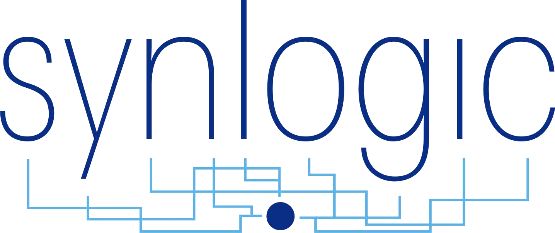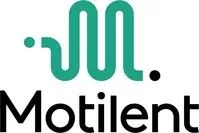Novome公布NOV-001

Novome Biotechnologies, inc. (NYSE: Novome) today announced that nov-001, a drug candidate for the treatment of enteric-derived hyperoxaluria, has received positive results from its Phase 1 clinical trial. The results showed that the effective strain could be safely colonized in intestinal tract with controllable abundance.
People with enteric-borne hyperoxaluria have rising levels of oxalic acid in their urine and are at increased risk for kidney stones and, in more severe cases, chronic kidney disease and kidney failure.
The candidate drug NOV-001 is composed of two active components NB1000S and NB2000P. NB1000S is a genetically engineered strain capable of metabolizing oxalic acid. NB2000P is a modified polysaccharide extracted from seaweed, which can be used as the only carbon source of NB1000S.
The Phase 1 study is a prospective randomized controlled trial that enrolled 24 healthy volunteers. In the study, volunteers received either 0.5g or 10g of NB2000P per day and 1×109 CFU (colony-forming units) of NB1000S for 14 days.
Studies have shown that NB1000S can be effectively colonized in the intestine, and its abundance depends on the dose of NB2000P taken by volunteers. The effect of candidate drug NOV-001 on intestinal microbiota was minimal, and metagomic sequencing showed no abnormal changes in intestinal microbiota diversity. After stopping taking NB2000P, no NB1000S were detected in the volunteers' intestines.
In addition, the drug candidate NOV-001 was safe and well tolerated with no serious adverse events. None of the volunteers asked to adjust the dose or quit the trial.
Lachy McLean, Novome's chief medical officer, said of the new study: "We are very optimistic about the efficacy of this drug. Patient recruitment for the Phase 2A trial has begun and we look forward to reporting top-line results next year."
References in this section:
http://novomebio.com/wp-content/uploads/2021/11/Novome-Reports-Positive-Results-from-NOV-001-Phase-1.pdf
Impossible Foods to obtain
3.2 billion yuan in new financing

On Nov. 23, Impossible Foods (Impossible), the leading plant-based leadership brand, announced its latest round of funding at $500 million. Long-time shareholder Mirae Asset Global led the investment round.
Impossible has raised $2 billion in financing since it was founded in 2011. The new funds will be used to help Impossible continue to grow faster at the retail end, as well as refine its supply chain, product portfolio, research and development capabilities and expand into international markets.
According to market research firm IRI, Impossible has been the fastest growing plant-based brand in retail for 13 consecutive weeks, with more market share than the other 10 plant-based brands combined. Impossible has had a string of product launches over the past four months.
Impossible is also ramping up its global expansion, adding foreign markets like Canada, the United Arab Emirates, Australia and New Zealand in just over a year. At present, its products are available in nearly 40,000 restaurants and more than 20,000 supermarkets worldwide.
David Borecky, Impossible's CFO, said, "Our mission is to reverse the climate change clock by using food technology to reduce dependence on animal-derived foods and establish a sustainable and scalable food production system by 2035.
It is a great honor to have so many top investors firmly believe in our long-term development prospects. This latest round of funding allows us to further accelerate the pace of product innovation and global expansion and continue to harness the power of genetic engineering to meet consumer needs and combat climate change."
Thomas Park, President of Mirae Asset Global, commented, "Impossible is committed to revolutionizing the Global food production system, and we are honored to make another bet on Impossible. It's also important for us to support teams that are truly innovative."
References in this section:
https://www.businesswire.com/news/home/20211123005589/en/Impossible-Foods-Closes-500M-in-New-Funding-Amid-Record-Growth
Mosaic Foods to obtain
19 million seed rounds

The new funds will be used to help The company expand its core retail business, build more offline sales channels and develop new products.
Founded in 2019, Mosaic aims to provide consumers with fast, convenient and tasty plant-based products. Its products are packaged in bowls, cold chain throughout the whole process, and only need to be heated to eat. Its products were recognized by consumers as soon as they were launched.
Mosaic is now on a fast track, with a market that has grown 15 times since its inception. And, shortly after opening its first restaurant in New Jersey, Mosaic expanded to California.
Adam Slutsky, managing partner of Gather Ventures, comments, "Mosaic is unique in a rapidly growing field of plant-based brands. We have followed the company closely since its inception and are impressed by the breakthroughs they continue to make. "The convenience and speed of Mosaic's products will enable more consumers to reach plant-based foods without sacrificing taste and nutrition."
"Our mission is simple -- to put good food on people's tables," said Matt Davis, CEO of Mosaic. Consumers are increasingly demanding a balanced diet, which is difficult to satisfy due to price, taste, time and convenience. Over the past two years, we have brought many innovative products to consumers, which has enabled us to grow our business rapidly. Today we are very pleased to have a new investor join us in our efforts to bring our new refrigerated plant-based products to a wider market."
References in this section:
https://www.globenewswire.com/news-release/2021/11/23/2339923/0/en/Mosaic-Foods-Raises-6-Million-Seed-to-Power-The-Futur e-of-Plant-Based-Eating.html
Released Synlogic SYNB1618
Interim results

Synlogic Biology (Synlogic), a clinical-stage synthetic Biology pharmaceutical company, announced the results of a phase 2 clinical trial of its drug candidate SYNB1618 on Nov. 22 at the International Congress on Congenital Metabolic Diseases. The drug candidate SYNB1618 significantly reduced serum phenylalanine levels in patients with Phenylketonuria (PKU).
PKU is an innate metabolic disorder in which people with PKU are unable to metabolize phenylalanine properly and show symptoms soon after birth. If left untreated, toxic levels of phenylalanine can build up in the body and damage the nervous system, resulting in impaired cognition, behaviour and perception. As a result, many countries have implemented neonatal PKU screening and treatment to reduce the potential medical burden of the disease.
SYNB1618 is an oral in vivo biologic drug developed by genetic engineering from EScherichia coli Nissle1917. It can stably express phenylalanine metabolic enzymes in an anaerobic intestinal environment, metabolizing phenylalanine to trans-cinnamic acid, which is eventually metabolized by the host as horse uric acid.
In a PKU mouse model, SYNB1618, a candidate drug, reduced the concentration of phenylalanine in the blood by 38%, and effectively inhibited dietary elevation of phenylalanine in healthy cyclamophagus monkeys.
Among the eight patients analyzed, treatment with SYNB1618 was associated with a 40% reduction in postprandial D5-PHE absorption, a mean 20% reduction in fasting serum phenylalanine levels in all patients, and a mean decrease of more than 205μM in fasting serum phenylalanine concentrations in all patients who responded to treatment.
"PKU is a devastating disease by any measure," said Dr. Vockley, the trial's lead investigator. "Despite approved drugs, PKU patients still need effective treatments. The drug candidate SYNB1618 efficiently metabolizes phenylalanine in patients in the gastrointestinal tract."
Synlogic also presented the results of a study of SYNB1934, another candidate for PKU treatment, at the conference. SYNB1934 was optimized for a phenylalanine metabolic enzyme activity that was enhanced in healthy volunteers compared to SYNB1618.
References in this section:
https://investor.synlogictx.com/news-releases/news-release-details/synlogic-presents-data-demonstrating-reductions-plasm a
Janssen unveils TREMFYA drug
Phase 2 clinical top line positive results

On Nov. 17, Janssen Pharmaceuticals, a unit of Johnson & Johnson, announced top-line results from the GALAXI 1 study of TREMFYA (Tenoya), a phase 2 clinical trial candidate for the treatment of moderate to severe acute Crohn's disease (CD). The study showed that 65% of patients achieved clinical remission at week 48.
CD is a chronic inflammatory bowel disease, the exact cause of which is unknown. But studies have shown a significant link with immune system disorders. Genetic factors, diet and external stimuli are likely to trigger the disease. Clinical symptoms of CD are usually abdominal pain, blood in the stool, frequent diarrhea, weight loss, and fever.
TREMFYA is the first fully human monoclonal antibody developed by Janssen Pharmaceuticals. It selectively binds the P19 subunit of interleukin-23 (IL-23) and inhibits its interaction with the IL-23 receptor. Il-23 is an important driver of the pathogenesis of many inflammatory diseases.
The GALAXI 1 study was a double-blind, placebo-controlled dose-range study lasting 48 weeks. The primary endpoint was the change in crohn's disease disease activity Index (CDAI) score from baseline at week 12. Clinical remission was defined as a CDAI score of less than 150. All patients were moderate to severe CD patients who were intolerant to or did not respond to immunosuppressants and/or biologics.
Jan Wehkamp, Vice President and Head of Gastroenterology at Janssen Pharmaceuticals, commented, "We look forward to sharing the full results of the GALAXI 1 study at an upcoming medical meeting. "These are the first long-term results from a study of TREMFYA in patients with CD, and we are actively pursuing a Phase 3 clinical trial of the drug."
References in this section:
https://www.janssen.com/janssen-reports-positive-topline-week-48-phase-2-results-tremfyar-guselkumab-adults-moderately
Group standards for Probiotic foods have been officially released

On November 25th, the press conference of "Probiotic food" group standard sponsored by China National Food Industry Association was held in Beijing. Previously, the group standard of Probiotic Food (hereinafter referred to as "group standard"), led by China National Food Industry Association, has passed the review of the expert group, and was officially released and implemented on the official website of the Association and the national group standard information platform on November 8.
Probiotic foods are "foods that have been added with probiotics and the number of live probiotics within their shelf life meets certain requirements," according to the group label. Use of probiotic bacteria shall conform to the state issued at the same time the species list can be used for food and public announcement and the probiotic strain can be used in health food list "and the provisions of the notice, or conform to the national approval and registration of health food with species list, the use of probiotics strains should meet the following conditions:
• Strain number and isolation source should be identified;
• Identification, preservation and safety evaluation by a third party;
• Whole genome sequencing supported by relevant scientific literature;
• Positive reviews are supported by scientific literature with human or clinical trial studies.
For the first time, this consortium has given the definition of "probiotic food" from the perspective of industry co-ordination. For the first time, from the perspective of industry planning, it is clear that the probiotic strains used in "probiotic food" should meet the regulatory basis and four aspects of technical requirements, which fills the gap in the industry market and is expected to promote the high-quality development of probiotic food consumption.
References in this section:
http://www.ttbz.org.cn/StandardManage/Detail/52814/
Medical imaging software GIQuant
FDA 510 (K) certification

Motilent, a start-up focused on using medical image analysis to evaluate gastrointestinal diseases, announced today that its medical image software GIQuant has received 510 (K) certification from the U.S. Food and Drug Administration (FDA). The certification gives the software a green light to enter the U.S. medical market.
(Editor's note: 510 (K) refers to Section 510 of the Federal Food, Drug and Cosmetic Act of the United States, which requires that all specified devices must meet the requirements of the Act before being marketed in the United States. Class I, II, and III medical devices that do not exempt 510 (K) require product marketing registration. This product marketing registration is commonly referred to as FDA 510 (K) certification.)
It is reported that more than 62 million people are diagnosed with gastrointestinal diseases in the United States each year, costing more than $136 billion (869 billion yuan) in healthcare costs. Many of these drugs have a treatment failure rate of up to 60% within a year. However, it can take months or even years for doctors to determine whether a drug is effective for a patient.
GIQuant's software, combined with magnetic resonance imaging (MRI) scanning technology, assays and tracks motility in the gastrointestinal tract to help determine disease progression. The software, first used to treat Crohn's disease, provides data to monitor treatment response, helping doctors stop ineffective drugs faster and speed up treatment.
Alex Menys, CEO of Motilent, commented: "The digestive system is a global health concern, affecting how we feel, know and behave. Symptoms like abdominal pain, diarrhea and constipation can seriously affect our overall quality of life. The current lack of software technology for analyzing gastrointestinal diseases has seriously affected basic research, drug development and disease treatment. GIQuant's software, in conjunction with mri scans, makes it easier for doctors to assess the status of the gastrointestinal tract."
References in this section:
https://www.motilent.co.uk/1072-2/
The author | Richard
Review | 617
Edit | sakura sake